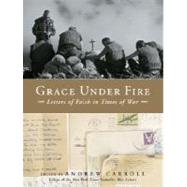
Note: Supplemental materials are not guaranteed with Rental or Used book purchases.
Purchase Benefits
What is included with this book?
ANDREW CARROLL is the founder of the Legacy Project and the editor of several New York Times bestselling collections of letters, including Letters of a Nation and War Letters, as well as the critically acclaimed Behind the Lines. War Letters was the inspiration for the PBS documentary of the same name, which was produced by American Experience.
The New copy of this book will include any supplemental materials advertised. Please check the title of the book to determine if it should include any access cards, study guides, lab manuals, CDs, etc.
The Used, Rental and eBook copies of this book are not guaranteed to include any supplemental materials. Typically, only the book itself is included. This is true even if the title states it includes any access cards, study guides, lab manuals, CDs, etc.